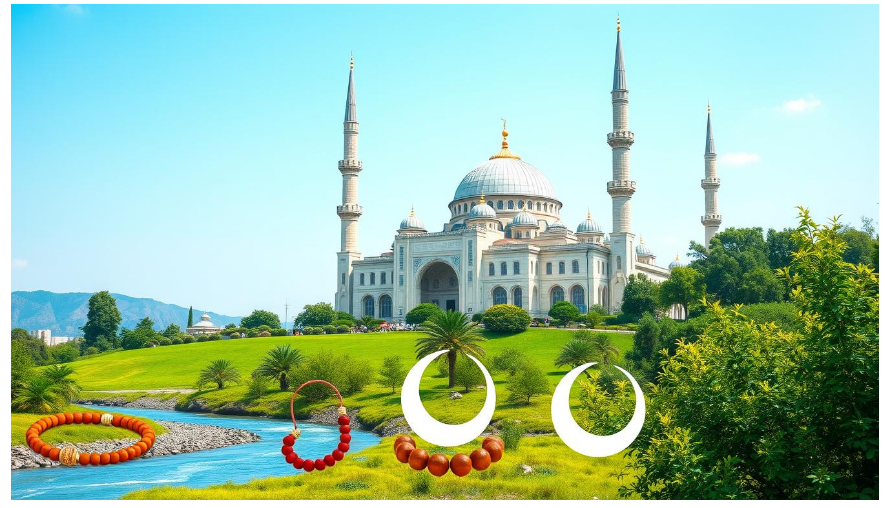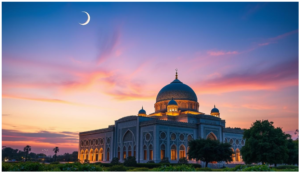Islam is a huge and influential religion with over 1.5 billion followers worldwide. But what exactly is Islam, and what do Muslims believe? The Quran, the holy book, plays a big role in Muslims’ daily lives. It guides them based on the teachings of Prophet Muhammad.
The Five Pillars are key, including saying the Declaration of Faith and praying daily. Muslims also give to charity, fast during Ramadan, and make a pilgrimage to Mecca. These practices show the deep personal and communal nature. As we look into the history, we see how it has grown, influenced by other cultures and guided by Islamic law and ethics.
Key Takeaways
- Islam is a monotheistic faith that emphasizes the Oneness of God and the importance of Islamic practices.
- The Quran is the holy book of Islam, and its teachings guide the daily lives of Muslims.
- Prophet Muhammad is the last prophet in Islam, and his teachings and example are highly revered by Muslims.
- The Five Pillars of Islam are the foundation of Islamic practice, and include the Declaration of Faith, daily prayers, charitable giving, fasting during Ramadan, and the pilgrimage to Mecca.
- Islamic beliefs, such as the belief in angels and the Quran as the final holy book, are an integral part of the faith.
- Islam is a diverse and global faith, with over 1.5 billion Muslims worldwide, and a rich cultural and societal heritage.
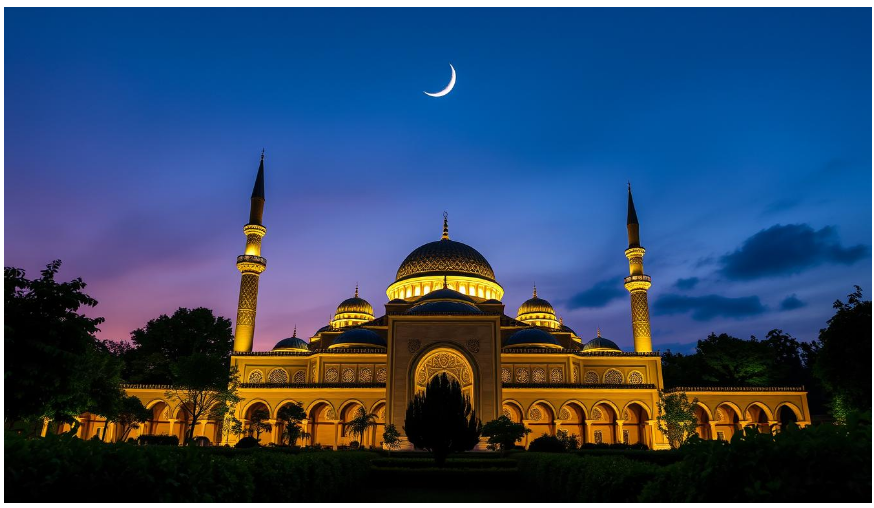
Understanding Islam: An Introduction to the Faith
The Muslim community is diverse, with followers from many ethnic and cultural backgrounds. Despite their differences, they unite under their faith. They follow the five pillars, which include declaring faith, praying, giving to charity, fasting, and making a pilgrimage.
The Muslim community is diverse, with followers from many ethnic and cultural backgrounds. Despite their differences, they unite under their faith. They follow the five pillars, which include declaring faith, praying, giving to charity, fasting, and making a pilgrimage.
Some key aspects of Islam include:
- The oneness of God
- The importance of prayer and worship
- The value of charity and compassion
- The significance of fasting and self-reflection
- The obligation of pilgrimage to Mecca
To understand Islam, one must appreciate its islamic history, beliefs, and practices. Exploring these can deepen one’s understanding of the faith and its role in today’s world.
| Aspect of Islam | Description |
|---|---|
| Islamic History | Rich and diverse, spanning over 1400 years |
| Five Pillars of Islam | Declaration of faith, prayer, charitable giving, fasting, and pilgrimage |
| Global Muslim Community | Diverse, with Muslims from various ethnic and cultural backgrounds |
The Origins and Historical Development of Islam
The history of Islam is rich and complex, spanning over 1400 years. It started in the 7th century CE with Prophet Muhammad’s mission. The word “Islam” means “submission to the will of God.” Muslims, mostly Sunnis, make up nearly 90 percent of the global population.
The islamic traditions and islamic culture have grown a lot over time. The Quran guides Muslims. It has 114 chapters, or surahs, and is seen as God’s word to Prophet Muhammad.
Important events in islamic history include the Hijra and the expansion of Islamic territories. These events mark the start of the Muslim calendar and the growth of Islamic lands.
Some key aspects of islamic culture include:
- The Five Pillars of Islam, like declaring faith and fasting
- The Quran and Hadith as main guides for Muslims
- The beauty of Islamic art and architecture
The islamic traditions and islamic culture keep growing. Muslims worldwide add to the rich Islamic heritage. Knowing the islamic history and islamic traditions helps us understand the faith’s diversity and complexity.
The Five Pillars of Islam: Core Religious Practices
The practices of Muslims are guided by the Five Pillars. These pillars are the foundation of the faith. They are essential to the beliefs and teachings. Over 1.9 billion Muslims worldwide practice these pillars.
The Five Pillars are:
- Shahada: Declaration of Faith
- Salah: Daily Prayers
- Zakat: Charitable Giving
- Sawm: Fasting During Ramadan
- Hajj: Pilgrimage to Mecca
These pillars are a crucial part of islamic practices and muslim beliefs. They are observed by Muslims all over the world. The islamic teachings emphasize their importance in daily life.
The following table provides an overview of the Five Pillars and their significance in practices:
| Pillar | Significance |
|---|---|
| Shahada | Declaration of faith, affirming the oneness of God and the prophethood of Muhammad |
| Salah | Daily prayers, performed five times a day, to maintain a strong connection with God |
| Zakat | Charitable giving, to help the poor and needy, and to promote social justice |
| Sawm | Fasting during Ramadan, to develop self-control and empathy for those in need |
| Hajj | Pilgrimage to Mecca, to unite with Muslims from all over the world and to reaffirm their faith |
The beliefs and faith are based on the idea of one God, called Tawhid. This idea is at the heart of the religion. It shapes the daily lives of Muslims.
The Quran is the sacred text of Islam, given to Prophet Muhammad over 23 years. It is the final holy book, after the Torah, Psalms, Gospel, and Scrolls. Muslims believe there won’t be another sacred text or messenger after the Quran.
The Quran is in classical Arabic but has been translated into many languages, including English. Its interpretation uses three main methods: direct reading, Tafsir (exegesis), and the Sunnah (traditions) of Prophet Muhammad. It teaches that faith and good deeds lead to heaven, while evil deeds lead to hell.
Some key points of the Quran include: * Guidance for those who are mindful of God and who believe in the unseen * Historical narratives showing continuity from prior monotheistic faiths * Emphasis on the importance of faith and good deeds * Description of God as “The Merciful” and “The Forgiving”
The Quran is a source of islamic teachings and divine guidance. It shapes the beliefs and practices of Muslims worldwide. With over 1.8 billion Muslims, its importance is immense. The Quran’s message is one of peace, mercy, and forgiveness, guiding Muslims to live a righteous life.
The Quran deeply impacts Muslims, offering comfort, guidance, and inspiration. As a sacred text, it is highly respected by Muslims. Its message is seen as universal and timeless.
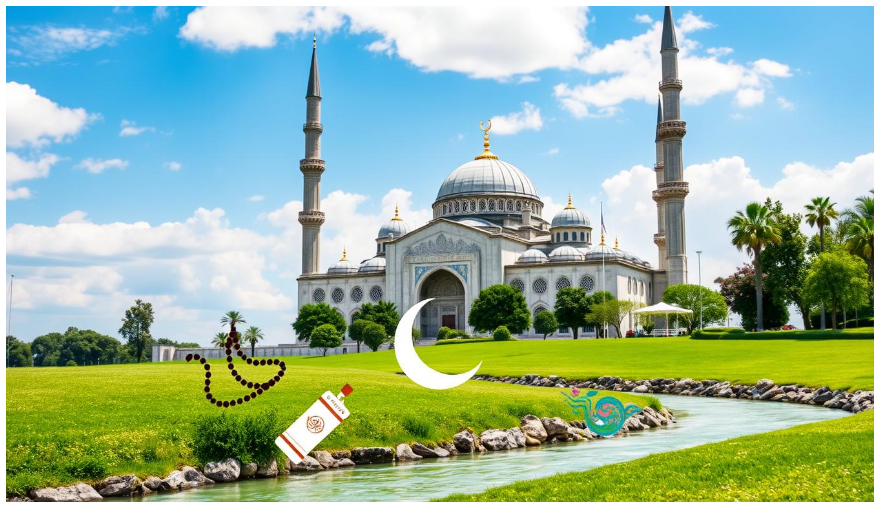
| Aspect of the Quran | Description |
|---|---|
| Revelation | Revealed to Prophet Muhammad over 23 years |
| Language | Revealed in classical Arabic, translated into various languages |
| Interpretation | Conducted through direct reading, Tafsir, and the Sunnah of Prophet Muhammad |
Prophet Muhammad: The Messenger of Islam
Prophet Muhammad is a key figure in Islamic history. His teachings have greatly influenced the Muslim community. He was born around 570 A.D. in Mecca. At 40, he started sharing the message of Islam.
His mission began in 610 CE and lasted about 23 years. During this time, he received revelations from Allah through Gabriel. These messages were gathered into the Quran, seen as God’s word by followers.
His life and teachings have deeply impacted the community. His example guides beliefs and practices. His message of peace, justice, and compassion is still important today.
Some key aspects of Prophet Muhammad’s life and teachings include:
- His emphasis on compassion, mercy, and forgiveness
- His teachings on the equality of all people, regardless of background or social status
- His role as a leader and guide, who united the tribes of Arabia and established a just and fair society
Overall, Prophet Muhammad’s life and teachings are crucial in Islamic history. His legacy continues to shape the Muslim community today.
Overall, the teachings are crucial in history. His legacy continues to shape the community today.
The islamic beliefs and muslim faith are based on the idea of one God, called Tawhid. This idea is at the heart of the islamic religion. It shapes the daily lives of Muslims.
The beliefs are built on the Six Articles of Faith. These include believing in one God, prophets, angels, scriptures, the day of judgment, and the divine decree.
The islamic religion focuses a lot on the afterlife. It believes that every person will be judged for their actions in this life. The goal of human life, according to the muslim faith, is to worship God and seek salvation in the afterlife.
The teachings of the Holy Quran and the Prophet Muhammad guide the islamic beliefs and practices.
Important parts of islamic theology include free will and the role of angels. Muslims believe in the freedom to choose between right and wrong. They also believe that angels guide humans towards the right path.
The islamic beliefs and muslim faith are complex and continue to grow and evolve.
Key aspects of islamic theology include:
- The oneness of God (Tawhid)
- The belief in the prophets and the scriptures
- The concept of the afterlife and the day of judgment
- The role of angels in guiding humans
- The importance of free will and personal responsibility
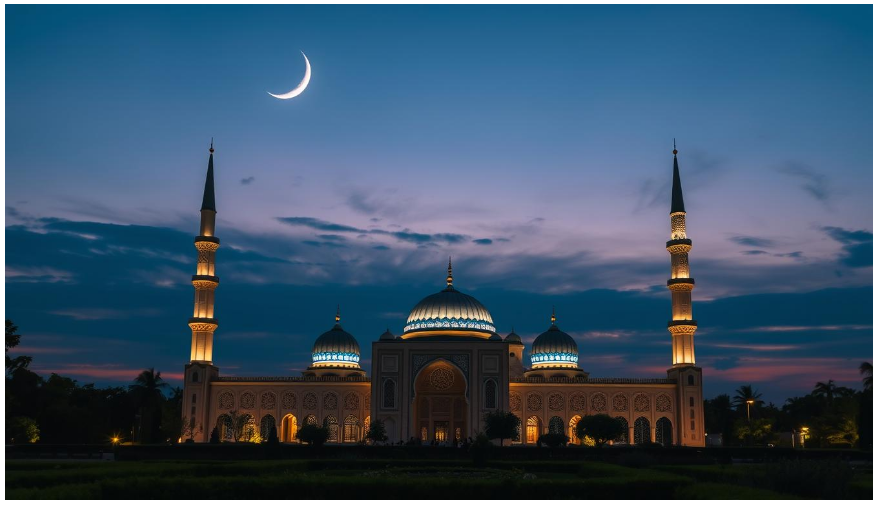
Islamic Law and Ethics: Understanding Shariah
Islamic law, or shariah, is key in the muslim community. It guides people in their daily lives and how they interact with others. The Quran and Prophet Muhammad’s teachings form the basis of this law, helping make ethical choices.
In different muslim-majority countries, shariah is applied in various ways. About fifty countries use sharia in their laws. A dozen of these countries allow physical punishments based on sharia.
Islamic law touches many areas of life, including:
- Family law, where shariah guides marriage, divorce, and inheritance
- Criminal law, where shariah provides punishments for crimes such as theft and adultery
- Financial transactions, where shariah prohibits interest and promotes fair trade
Even with different views on how to apply it, islamic law is crucial for muslims. It encourages justice, compassion, and fairness in every part of life.
| Country | Application of Sharia |
|---|---|
| Iran | Sharia is the basis of the legal system, with punishments including flogging and amputation |
| Saudi Arabia | Sharia is the official law, with punishments including flogging and execution |
| Indonesia | Sharia is applied in some regions, with punishments including flogging and caning |
Islamic Culture and Traditions Around the World
Islamic culture is a rich and diverse tapestry. It is woven from the threads of islamic traditions and the muslim faith. With over 1 billion followers, Islam is the second largest religion globally. Its cultural influence is seen in many regions.
Art and Architecture
Islamic art is known for its intricate geometric patterns. Mosques and palaces showcase grand architecture. The use of calligraphy and arabesques creates a unique style.
Literature and Poetry
Islamic traditions have deeply influenced literature and poetry. The Qur’an is seen as the finest Arabic literature. It has inspired many famous poets and writers.
The ghazal, a Persian poetry form, has also influenced Urdu and Indian literatures. Cultural celebrations and festivals of the muslim faith are key to islamic culture. They feature music, dance, and traditional entertainment.
These celebrations unite people and foster a sense of community. They are vital to the rich and diverse tapestry of islamic culture.
The Role of Islam in Contemporary Society
The muslim community is a vital part of today’s society. Islam’s faith and culture shape the lives of millions worldwide. Recently, there’s been a surge in interest in Islam’s role in modern society.
Islamic culture values community and social justice. Many Muslims engage in charity and volunteer work. They focus on helping others and fostering social unity. This dedication to justice is a key part of Islam.
Statistics show Islam’s importance in today’s world. A survey in 39 countries found 74% of Muslims want Sharia law. Also, Muslims are involved in interfaith dialogue, aiming for mutual respect and understanding.
In summary, Islam’s role in society is complex but vital. By understanding Islam, we can build a more inclusive world. A place where everyone, regardless of background, can succeed.
Conclusion: The Enduring Legacy and Universal Messages of Islam
As we wrap up our look at the Islamic faith, it’s clear that Islam’s legacy is strong. It shows the deep and lasting effect it has had on the world. From its rich history to its core teachings, Islam inspires and guides millions worldwide.
Islam’s core message is about unity, justice, and kindness. These values touch people from all walks of life. The teachings of Islam focus on the well-being of individuals and society. They encourage living in harmony, beyond cultural and geographical lines.
Reflecting on Islam’s legacy, we see its timeless values. The Muslim faith is a light of hope. It calls us to follow the paths of peace, tolerance, and spiritual growth. By embracing Islam’s teachings, we can strive for a fairer, more connected world.
FAQ
What is the meaning of Islam?
Islam is a monotheistic Abrahamic religion. It teaches that there is only one God (Allah). Muhammad is seen as a messenger of God. The word “Islam” means “submission” or “surrender” to God’s will.
Who is the Prophet Muhammad?
Prophet Muhammad is the central figure of Islam. He is believed to be the final prophet sent by God. He received divine revelations that make up the Quran, Islam’s holy book.
What are the five pillars of Islam?
The five pillars of Islam are key religious practices. They are: 1) Shahada (declaration of faith), 2) Salah (daily prayers), 3) Zakat (charitable giving), 4) Sawm (fasting during Ramadan), and 5) Hajj (pilgrimage to Mecca).
What is the significance of the Quran in Islam?
The Quran is Islam’s central religious text. It is believed to be the word of God revealed to Prophet Muhammad. It guides and inspires Muslims, shaping their beliefs and practices.
What are the core beliefs and principles of Islam?
Islam’s core beliefs include the oneness of God and the role of angels. It also includes the concept of the afterlife and following the Quran and Prophet Muhammad’s example. These beliefs guide Muslims’ ethical framework and daily practices.
How diverse is the global Muslim community?
The global Muslim community, or Ummah, is very diverse. It includes many cultures, ethnicities, and languages. Yet, Muslims are united by their shared beliefs and practices.
What is the role of Islamic law and ethics in the modern world?
Islamic law, or Shariah, provides a framework for ethics and law in life. It covers personal, social, and political aspects. Its principles of justice, compassion, and fairness shape Muslim communities’ ethics.
How does Islamic culture and tradition reflect the faith?
Islamic culture and traditions are rooted in the Quran and Prophet Muhammad’s example. They are seen in the rich artistic, architectural, and literary expressions across the Muslim world. These show the unity and diversity of Islam.
What is the significance of Islam in contemporary society?
Islam plays a significant role in today’s society. It influences politics, social justice, and interfaith dialogue. Understanding Islam is key for promoting understanding, tolerance, and cooperation among different backgrounds and faiths.
Source Links
- https://www.britannica.com/topic/Islam
- https://www.pbs.org/wgbh/pages/frontline/teach/muslims/beliefs.html
- https://www.forewordreviews.com/articles/article/understanding-islam-8-books-introduce-a-diverse-world-tradition/
- https://www.islamicbookstore.com/books-introduction–propagation-and-conversion-introductions-to-the-islamic-faith.html
- https://www.goodreads.com/book/show/259794.Understanding_Islam
- https://www.history.com/topics/religion/islam
- https://www.metmuseum.org/toah/hd/isla/hd_isla.htm
- https://en.wikipedia.org/wiki/History_of_Islam
- https://www.saudiembassy.net/five-pillars-islam
- https://en.wikipedia.org/wiki/Five_Pillars_of_Islam
- https://crestresearch.ac.uk/comment/islam-five-pillars/
- https://www.reviewofreligions.org/28047/divine-guidance-quran-perspective/
- https://favs.news/sacred-texts-the-holy-quran/
- https://www.metmuseum.org/learn/educators/curriculum-resources/art-of-the-islamic-world/unit-one/the-prophet-muhammad-and-the-origins-of-islam
- https://en.wikipedia.org/wiki/Muhammad_in_Islam
- https://en.wikipedia.org/wiki/Muhammad
- https://www.alislam.org/book/pathway-to-paradise/islamic-beliefs-teachings/
- https://www.britannica.com/topic/Islam/Islamic-thought
- https://plato.stanford.edu/entries/arabic-islamic-religion/
- https://www.cfr.org/backgrounder/understanding-sharia-intersection-islam-and-law
- https://culturalatlas.sbs.com.au/religions/islam/resources/islam-law-and-ethics
- https://en.wikipedia.org/wiki/Islamic_culture
- https://www.usccb.org/committees/ecumenical-interreligious-affairs/introduction-islamic-tradition
- https://www.pewresearch.org/religion/2013/04/30/the-worlds-muslims-religion-politics-society-overview/
- https://rsc.byu.edu/mormons-muslims/islam-modern-trends-0
- https://www.iium.edu.my/deed/articles/challenge.html
- https://issp.edu.pk/2024/04/28/ibn-taymiyyahs-enduring-legacy-as-a-legend/
- https://www.mei.edu/bassiouni/intro-to-islam
- https://en.wikipedia.org/wiki/Islam
Click here to learn more about this topic in a related article.
